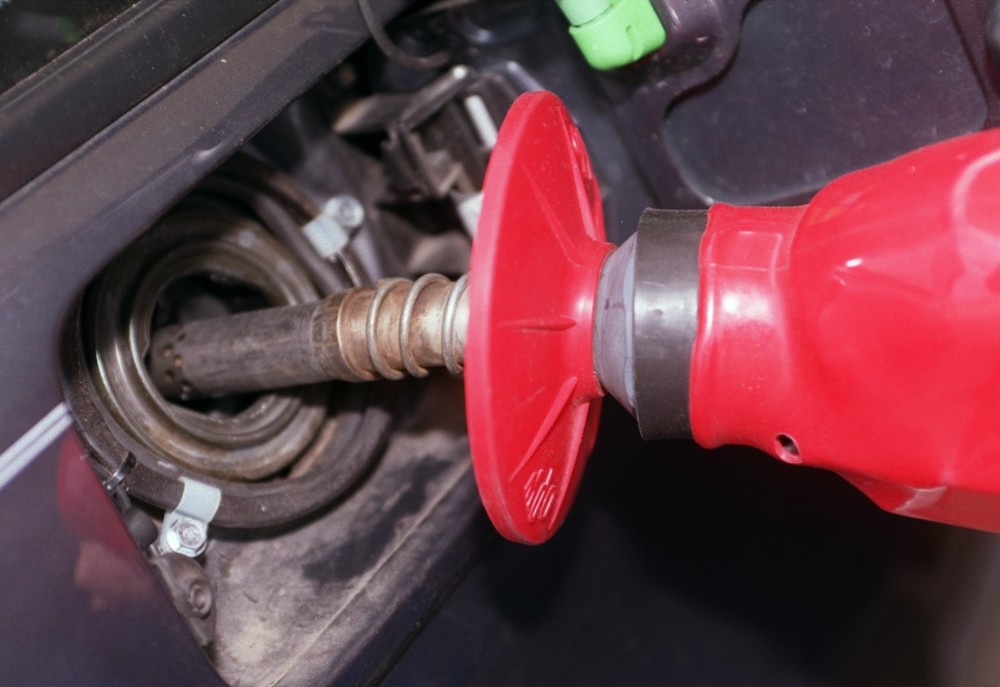By Jennifer Van Grove
The San Diego Union-Tribune.
SAN DIEGO
Even in an era where no errand is too small to outsource to a smartphone application, startup Purple, which dispatches a stranger to fill up customers’ gas tanks, might smack as on-demand capitalism gone too far.
That’s right. It’s now possible to push a button and get gas, no trip to the station required.
With Los Angeles-based Purple, which expanded into San Diego in October, folks in both cities can use the company’s iPhone or Android app when they’re short on fuel. A Purple “courier,” clad in a purple T-shirt, will come to the customer’s location in one to three hours, depending on preference, locate the car, and either add 10 or 15 gallons of gas (using portable gas cans) to its tank.
The customer’s credit card is billed the going rate for gas, as advertised in the application, with rates comparable to what might be found at neighborhood stations. A service charge is being waived for the time being. The customer’s only task is to make sure his gas tank is accessible to Purple’s people.
“It’s so convenient. I’m always waiting to the last minute to fill the gas tank,” said Stephanie Aviv, 41, a Los Angeles resident and Purple customer who has abandoned the gas station altogether. “In my head, it’s such a waste of time to go to the gas station.”
She is the type of repeat customer Purple had in mind when the company launched its on-demand gas app in Los Angeles in May. Backed by an undisclosed millions of dollars in seed financing (with some coming from Uber co-founder Oscar Salazar), Purple has the lofty ambition of upending the old-fashioned fuel business the same way Uber disrupted the taxi market, using smartphone technology to save consumers time and effort.
With Americans filling up on more than 9 million barrels of gasoline per day, according to the U.S. Energy Information Administration, perhaps there’s a real market for a new kind of full-service fill-up. Purple isn’t the only startup to think so. At least two other apps, Filld and FuelMe, are delivering fuel on-demand in different markets.
Purple says it has signed up “thousands” of users in its first two markets, Los Angeles and San Diego, with a bulk of its audience in the larger metro where it has been operating the longest.
Though the number may sound humble, Purple sees 50 percent of daily orders come from recurring clients, said co-founder Bruno Uzzan. A sign, he said, that the service is proving useful to its earliest adopters.
“Most of us don’t like to go to the gas station,” Uzzan said. “Our customers are saying they are losing time. It takes 10 to 15 minutes to fuel a car, and they wish they could spend the time on something else.”
But gas is sticky subject for many consumers, some of whom have no qualms rerouting their commutes to stop at the most affordable stations in town. Plus, while Purple may not be an upscale-only offering, the first-world problem the app solves certainly invites at least a modicum of ridicule.
“Whereas mobile apps can really make our lives our easier, I question how lazy we’re getting when we need to call someone to fill up our gas tank,” said Steven Osinski, a professor of marketing and the chairman of the Lavin Entrepreneurship Center at San Diego State University.
There is a niche market for Purple, Osinski admitted, but the app’s long-term potential seems questionable. So, too, is the fate of many highly specialized on-demand apps. While Uber flourishes, and Google and Amazon battle to speed up shipping to near-instantaneous speeds, push-button consumerism hasn’t always worked for every whim.
Cherry, for instance, which brought the car wash to customers’ car, had a moment in the sun in San Diego but shut down in December 2012. And Homejoy, an app for ordering house-cleaning services, closed its doors in July.
With the proliferation of smartphones, the on-demand boom isn’t anticipated to bust, but some of the companies certainly will. As Osinski put it, some specializations are so niche they can’t be sustained.
Maybe Purple can hang in for the long haul. Drivers can live without a car wash or a housecleaning, but their cars will always need gas. And it’s never pleasant to take a gas station detour when already behind schedule.
“I’m probably going to (use Purple) again because I was on E when I got to work,” said Lania Bettin, a 40-something senior companion who lives in Los Angeles. “I live across the street from a gas station, but I don’t always have time to make the stop.”














































































































































































































































































































































































